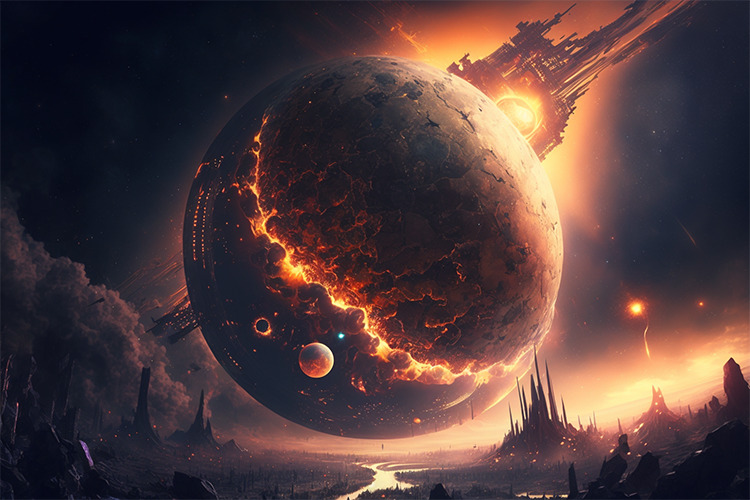
This picture was created completely by artificial intelligence. photo by Mid Journey Open AI, with prompt supplied by Ravi Apte
Open AI released their revolutionary software Chat GPT last November.
Open AI (Artificial Intelligence) released its learning language model AI, ChatGPT (generative pre-trained transformer) in November of 2022. The Open AI saw immediate success, with thousands of users signing up for the free site within a matter of weeks. Only a few months after the initial iteration of the AI was released, Open AI stated that they predicted 1 billion dollars in profit by 2024. ChatGPT came out of left field and many in the tech world believe that it will shape how people interact with computers. CCT Teacher Stacy Fornstrom stated that “AI in general, whether it is ChatGPT or something else, will be huge.” Despite this most people still wonder, what is ChatGPT? How does it work? And how does it affect me?
ChatGPT is a learning language model AI. In simple terms, all the AI does is predict what word naturally comes next in a sentence. For example, if the sentence were “Jack jumped over the,” ChatGPT knows that the next word in that sentence is a candlestick. The AI does that but on a much larger scale and at a faster pace, generating entire pages of comprehensive sentences about whatever the user tells it to write about.
Of course, most people, no matter the level of education, are capable of finishing basic sentences or explaining simple subjects. ChatGPT, however, can generate complex sentences on various subjects. This grants it the capability to write papers for its users that explain complex and niche subjects such as advanced physics and mathematics, anatomy and biology, and even human psychology.
The greatest critics of ChatGPT are educators. Some students have begun using the program to write their essays and assignments for them. This of course became a major concern among teachers and parents. One solution to prevent students from submitting writing made by the AI could be creating a digital watermark embedded into the writing. That way educational institutions could differentiate AI writing from student writing. For some teachers, this step has proven to be unnecessary. In an article in the Denver Post, English Teacher Amber Wilson was quoted about her thoughts on the issue. The writing samples Wilson’s seen produced by artificial intelligence “lack depth, quotations and sourcing — and don’t offer much in terms of a writer’s voice.” If teachers are able differentiate AI writing from real student submission than if may prove to be a worse cheating device than students may assume.
It is also important to note that this issue is very new and with time solutions to this problem will come around, either by educators or by Open AI themselves. Some speculate that AI could contribute to education rather than pose a threat. Fornstorm commented, “There could be ways that it would benefit education, but we have got to figure out what they are.”
Despite its impressive facade, ChatGPT is not always perfect. In order for the AI to be a functional tool, it must first collect data for it to use. It gathers this data by sweeping the internet, reading millions of webpages and collecting what it finds. When the AI is given a prompt, it pulls on the information that it has stored and uses it to generate a response. The main issue with this process is that, as everybody knows, not everything on the internet is true. An example of this could be, when asked to write about the results of the 2016 presidential election, ChatGPT might spit out an essay about how Hillary Clinton beat Donald Trump.
This flaw in the AI likely will not exist for long. It is important to recognize that it has only been a few months since it has been released and with enough time Open AI will be able to fix bugs like this one and greatly improve the AI. Microsoft recently acquired Open AI for 1 billion dollars, and has big plans for the future of ChatGPT. Microsoft stated that they plan to integrate the AI into their internet browser (Edge) as well as Microsoft Office Suite applications. This move could potentially give Microsoft a huge competitive edge against its competitors.